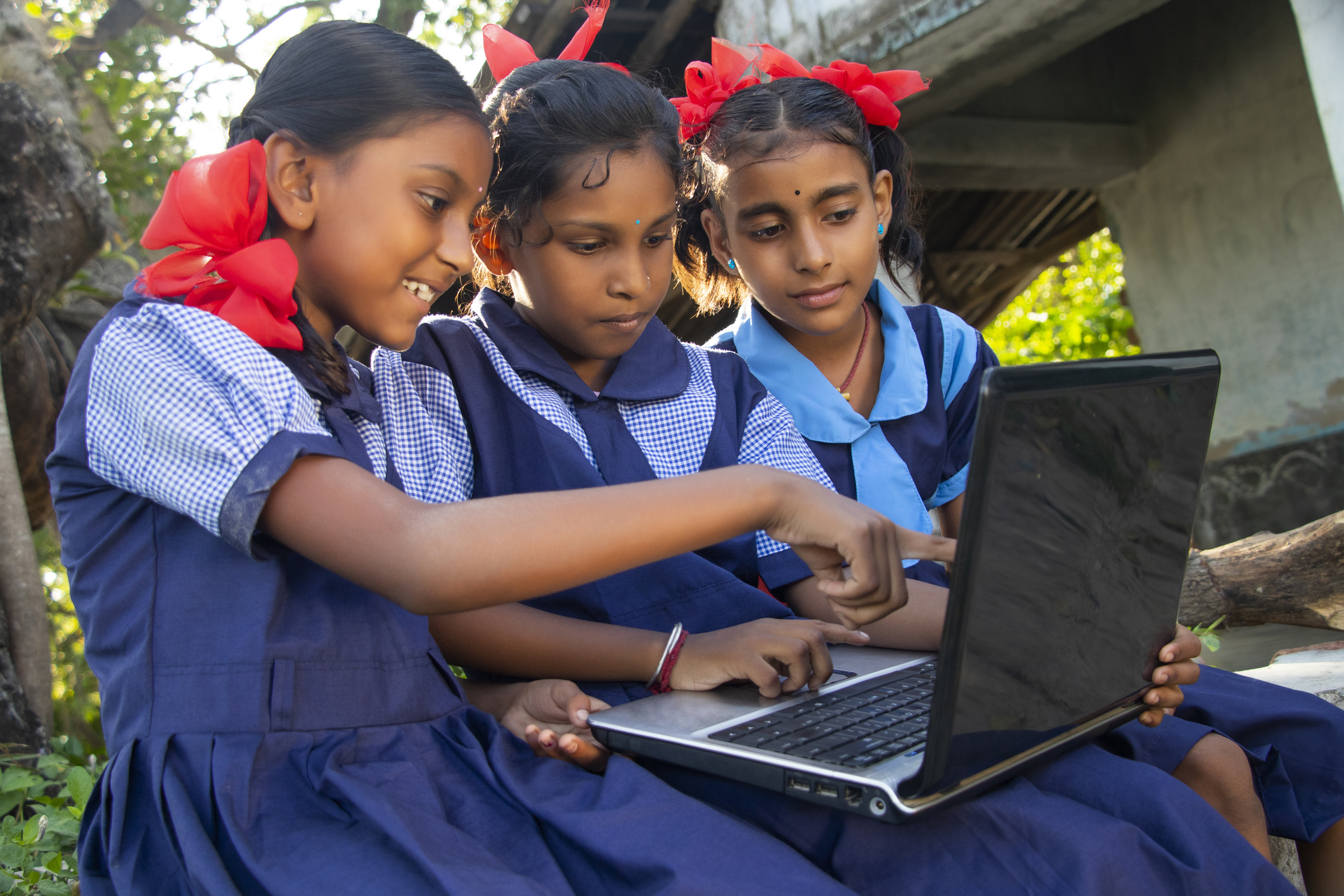A new study from Enfold Proactive Health Trust and the Fund explores youth digital engagement in India—from the perspective of children themselves.

Teenagers and young adults today are considered part of the first truly digital native generation. For many of them, technology has been integral to their lives since they were born. Their relationships with smartphones, computers, and the digital space can be perplexing to parents, teachers, and even young adults who grew up in an analogue world. Yet researchers tend to approach this issue from the perspective of adults. And although young people around the world engage with digital technology daily, little research about their habits exists in the context of the Global South.
That’s why the Fund for Global Human Rights has partnered with Enfold Proactive Health Trust to study the opportunities and challenges of youth digital engagement from the perspective of children in Karnataka, India. The result is an important new study: Pathways for Healthy Digital Engagement: Perspectives of Children and Adult Stakeholders from Karnataka, India.
This report presents a child-centric gaze on the phenomenon of digital engagement. It includes the perspectives of young people from varying classes and backgrounds as well as the opinions of their parents and teachers to explore the extent of coherence and dissonance between these three key stakeholders. The study details different aspects of digital engagement, such as the age that young people first engage with the digital world, how they approach it, its impact on their lives and development, and how adults in their lives monitor (or, in some cases, don’t monitor) their use of technology. The report concludes with a series of recommendations intended to maximize the positive effects and mitigate the negative impacts of digital engagement through healthy and responsible online interaction.
Key Learnings and Recommendations
This study surfaced many important learnings for parents, teachers, and other adults who are concerned with promoting healthier digital engagement for younge generations. It also made one thing clear: children and young poeple absolutely must play a central part in the conversation. While adult stakeholders had some understanding of youth digital engagement, young people themselves had a much more nuanced and comprehensive view of their online lives and habits.
Other key learnings from the study include:
- Nearly every parent interviewed—98 percent—said they use time-based mechanisms to monitor their children’s digital usage and 53 percent said their children have responded positively. Yet the students interviewed overwhelmingly disapproved of time-based monitoring, and many said they had found ways around it.
- A majority of parents said that they believed children should be 16 or older before they begin engaging with the digital world. Yet nearly half—47 percent—had already given their child a digital device before that age.
- Students were best able to describe the positive and negative effects of their digital engagement. Parents had a better understanding of the positives than the negatives, while teachers often saw the negatives rather than the positives. Overall, there was a poor shared understanding between the three stakeholder groups.
- Only 9 percent of parents and no teachers were aware of the various laws, regulations, and policies that are applicable to youth cyber safety. But over half expressed they would like to learn more.
The study offers a number of recommandations and paths forward for parents and teachers, including:
- Maintaining more open channels of communication with children about their digital engagement.
- Increasing digital literacy and awareness of online safety.
- Acting as role models that promote healthy digital engagement at home and at school.
- Learning to recognize signs of digital dependency and related mental health issues.
Digital Engagement and Human Rights
Now, you may be wondering: What does digital engagement have to do with human rights?
Young people today learn to understand the world they live in through the imperfect—and sometimes outright disorienting—prism of the internet. The amount of time they spend online, the information they choose to believe (or reject), and the connections that are made or broken across virtual space are all facets of digital engagement that shape young people today. It can have profound effects on their mental and emotional health, their sense of self, and their relationship with community. These behaviors carry lasting impacts for society, culture, and our shared civic space.
And while young people today may be digital natives, that doesn’t mean they are all digitally literate. Even as teenagers engage with the digital world, many still lack the knowledge and tools to sift through the misinformation that proliferates across social media. Across the globe, policymakers and scholars agree that improving digital literacy is critical for defending the practice of democracy—a cornerstone of the human rights movement.
This is a first step toward developing better education and healthy practices that encourage rights-based behaviors. Adults—including teachers and parents—who want to promote positive digital engagement must begin by understanding how young people use the internet. And young people, whose perspectives are so often excluded, must be part of these important conversations.
By fostering healthier digital engagement and higher digital literacy across diverse populations, we can help contribute to the development of engaged, civic-minded young people around the world.
Sign up to our newsletter
Add some impact to your inbox.
By submitting this form, you accept that your data will be stored and processed in line with our Privacy Policy.


